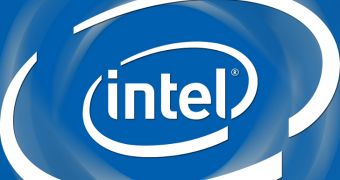Since it has so much money nowadays, Intel has decided to invest in yet another branch of IT, one that its expertise only partially coincides with: audio chips.
Trigence Semiconductor is the one that received an investment from Intel Capital this time, although the sum was, regrettably, not specified.
Regardless, the money will go towards the further development of the Dnote full digital audio signal processing technology.
For those unaware, Dnote improved audio quality of speakers by skipping the digital-to-analogue conversion process altogether. Essentially, it drives speakers straight through digital signals and, besides boosting quality, significantly reduces power consumption too.
“Audio technology is evolving substantially, as a new user interface for computers. We think it will become a key aspect of communication between computers and people, as an interactive user interface using speech recognition, rather than just for listening to music,” said Akira Yasuda, founder, president and CEO, Trigence Semiconductor.
“With the new investment, we aim to step up our licensing of technology for computing devices, and to substantially reinforce our business infrastructure by starting volume production of chips.”
Trigence hopes to replace analog audio systems and the first step has already been taken. Japanese car-audio manufacturers have licensed its invention.
With Intel's backing, Dnote should finally expand to the PC and mobile market. Sure, Dnote-enabled audio systems will have to use slightly more expensive multi-coil speakers, but it is still only a matter of time before PCs, ultrabooks, smartphones and tablets adopt it.
“We are excited about the innovative idea and technical excellence of Trigence’s technology that will enhance the value of audio technology and user experience to the next level,” said Kazumasa Yoshida, president, Intel K.K. “We expect this technology will bring an innovative high fidelity experience to the wide variety of digital devices such as PCs, UltrabookTM and smartphones.”

 14 DAY TRIAL //
14 DAY TRIAL //